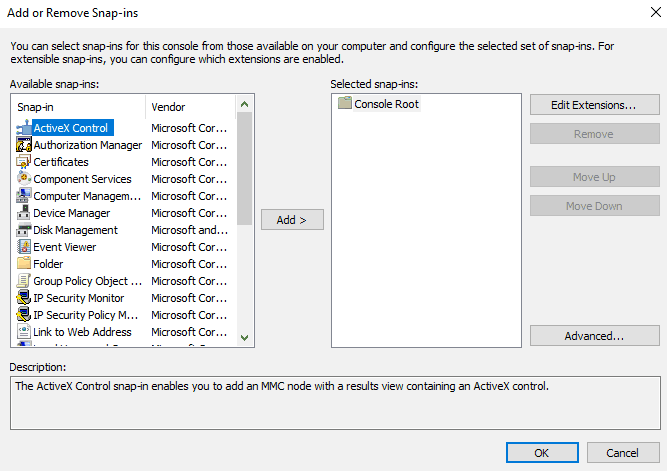Definition of Microsoft Management Console in the Network Encyclopedia.
What is Microsoft Management Console?
Microsoft Management Console, also known as MMC, is a tool first included with Microsoft Windows NT Option Pack that provides an integrated management framework for all administrative tools. MMC is now the standard administrative interface for managing the Microsoft Windows operating system and applications.

You can use MMC to create, save, and open administrative tools called consoles, which manage the hardware, software, and network components of your Windows system. If an application uses MMC to host its management tasks, then the application provides a console with snap-ins, which are dynamic-link libraries (DLLs). Event Viewer is an example of an application using the MMC framework in this way.
How it works
By itself, MMC does not provide any network or server management capability. Instead, it provides a common environment in which snap-ins can run. A snap-in is a component that provides some network or server management capability for administrators.
When a suitable set of snap-ins has been installed, the MMC configuration can be saved as a tool or an .msc file. You can use this file to delegate levels of management capability to other administrators, and you can place it on a network share or deliver it by e-mail.
The MMC user interface presents a hierarchical view of your network resources in a two-pane view similar to that of Windows Explorer. The left pane (the Scope pane) shows a hierarchical view of the administrative namespace of manageable nodes (network objects), while the right pane (Results pane) shows the contents, services, or configuration items of the selected node in the Scope pane. You perform management tasks by using the menu or toolbars, opening property sheets for nodes, and accessing Web pages in the Results pane.
MMC offers the following features:
- Customization: Administrators can create an MMC tool that contains the exact functionality they need.
- Integration: MMC integrates all management capability into a single common framework, making it easier to learn and perform network administration.
- Flexibility: Third-party companies can create their own snap-ins to further extend the capabilities of MMC.
